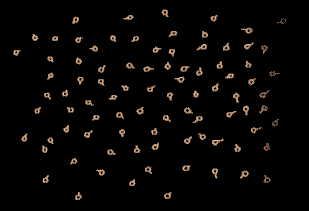Now I haven't looked into this and I know I could get answers by searching. But that would require a massive amount of time and energy, and to be honest evolution is something that while I find interesting, isn't on top of the list of things I want to research.
NOTE : I'm not sure if these are dumb questions so if I seem like an idiot you are probably right, but I'm a curious idiot, so let's begin.
1. How many transitional species have we found? As in animals that may have started to develop something but weren't all the way there, such as arms or legs. Because from what I've seen, the animals we've found are complete, they don't have any things that are still forming. It just seems that they are linking up separate animals that have similar characteristics and saying they evolved from one to the other. So yeah I'm just wondering how many creatures we've found, that started to develop something but hadn't yet, so you can point to one part of it's body and say "that is where the arm started to develop".
2. If an animal was starting to develop an arm, wouldn't their body have to know it was developing an arm? For the first few thousand years, all their arms would be is stubs, which are basically useless. So why would an animal develop useless stubs, that would only turn into something useful thousands of years down the track?
That's basically it. I had 2 other questions but I couldn't write them down properly... so thanks for reading
Every species is a "transitional species". No new part of the body starts evolving out of nowhere. The "useless stubs" would have been used for something.
Downvoting a post can decrease pending rewards and make it less visible. Common reasons:
Submit
Yeah I know that everything is transitional, but I'm talking about a species that hasn't fully developed a feature. Have we found one of those? If they were developing an extremity, at some point it would have to be tiny and have had no practical use. For instance the fish, that fin would first be tiny, maybe at first glance you couldn't even see it, and then overtime it would get larger. But if the fin starts off as something so small, how could the fish use it for anything? And again, why would it start to develop something that may take a while to be useful?
And cheers the gif is interesting
Downvoting a post can decrease pending rewards and make it less visible. Common reasons:
Submit
Evolution doesn't work like that.
Imagine the first clump of cells that stayed stuck together due to a mutation. At first moving around was nearly impossible. Later they probably lined up better and were able to move better. Next a subset of them in a position better able to move became dedicated to do it because that saved energy. As these traits spread throughout the population they got better at finding food. This meant that they could grow bigger. That single part of them that could move slowly changed shape and position, until it was a proto-fin.
(That is not 100% how it happened and I skipped a lot of steps, its just an example)
For a trait to spread throughout a population it must be useful. That trait also doesn't know what it will become. All of the traits evolve at once so they must have been useful in a less evolved form if they exist in that one.
Downvoting a post can decrease pending rewards and make it less visible. Common reasons:
Submit
Sorry I'm having a hard time understanding it. Are you saying that these mutations are sort of independent of the larger organism? As in, the mutation is just trying to improve itself not the entire organism it's part of? And so any benefits caused by that mutation to the entire organism is just by chance?
I don't know if this is right or if it makes sense though
Downvoting a post can decrease pending rewards and make it less visible. Common reasons:
Submit
The creation of each part is controlled by the genes. As the genes change the part is made differently. As long as the change gives a survival advantage the change spreads throughout the population by breeding.
"Are you saying that these mutations are sort of independent of the larger organism? "
Would a mutation that changes your eye color do anything to the rest of your body? Probably not, but it still might give a small breeding advantage.
"And so any benefits caused by that mutation to the entire organism is just by chance?"
yes mutations are random. More often than not they hurt the organism.
Downvoting a post can decrease pending rewards and make it less visible. Common reasons:
Submit
Thanks for your responses I think I understand it a bit better now
Downvoting a post can decrease pending rewards and make it less visible. Common reasons:
Submit
here this gif might help

Downvoting a post can decrease pending rewards and make it less visible. Common reasons:
Submit